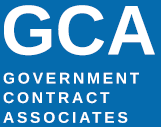Basic Rules For Travel Costs
(Editor’s Note. Ever since we started occasionally featuring recent developments for travel and relocation costs in our GCA DIGEST we have received requests to identify the not tos obvious rules covering travel costs. So here it is. It is based on several articles we have read over the years and our own experience. We decided to even reference private aircraft since it is becoming more accessible to many contractors.)
- Receipts for expenditure should be obtained in accordance with the contractor’s policies with the requirement that any item over $75 must be supported with a receipt.
- Per diem rates should apply at the lodging location not the business location in determining which rates apply.
- Car rental costs are not included in per diem rates.
- Travel cost limitations apply to direct and indirect travel costs charged to g over nment contracts. Individual contracts may have additional limitations or exceptions to normal limitations.
- In the mid-90s the FAR was changed to prohibit full per diem amounts for partial travel days. Contractors are permitted to establish their own rules for partial travel days as long as the full per diem amounts are not paid.
- Additional charges by hotels (e.g. surcharge fees, taxes) are fully reimbursable as miscellaneous travel expenses that are outside the per diem/lodging rates.
- Higher costs than the published lodging and per diem rates are allowable under special circumstances as long as they do not exceed 300 percent of the established per diem rates. Special circumstances established in the Federal Travel Regulations which applies to contractors are (1) if short-term conditions exists such as a world fair, convention, natural disaster or (2) if superior or extraordinary circumstances are necessary due to the work assignment. If possible, receipt of approval by contracting officials may be prudent where if frequent deviations for a location are common, an advance approval should be obtained.
- Though government employees are not allowed to retain their frequent flyer benefits for personal use, no such prohibition exists for government contractor employees, though there are occasional legislative proposals to prohibit it. DCAA auditors sometimes require contractors to have a written policy addressing frequent flyer benefits.
- Costs of company-owned, leased or charter aircraft, which includes costs for the lease, charter costs, operations, maintenance, depreciation, insurance and related costs, are allowable to the extent they do not exceed standard air fares unless those costs are required under a contract or a higher amount is approved by the CO. Circumstances justifying these higher amounts include (1) scheduled transportation services are not reasonably available (2) critical situations might not be accommodated (3) increased flexibility actually saves time and enhances effectiveness of key personnel (4) national or industrial security demands privacy for key personnel or (5) the contract requires flight testing of equipment. Government auditors can be expected to request “supporting documentation” for justifying use of these vehicles, not just accept a contractor’s contention of increased efficiency, where costs are to be allocated to the total number of passengers including those passengers who not allowable (e.g. spouses).
